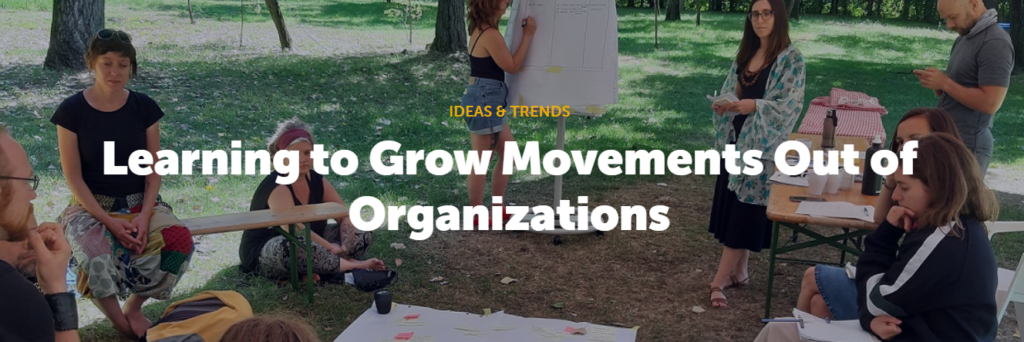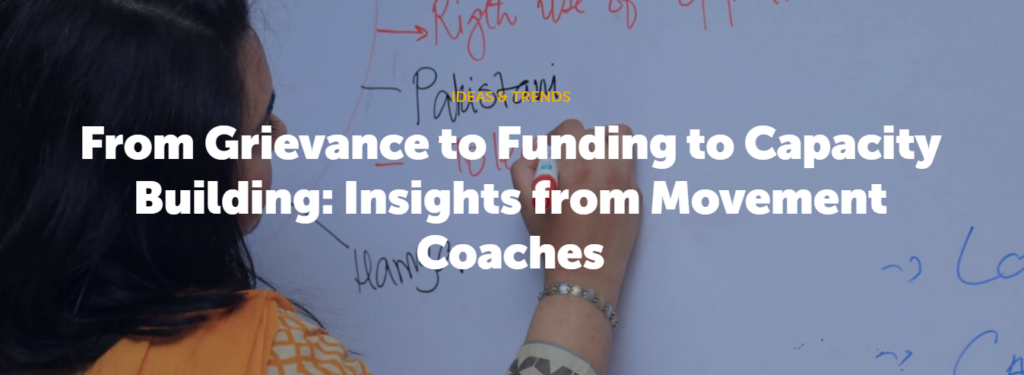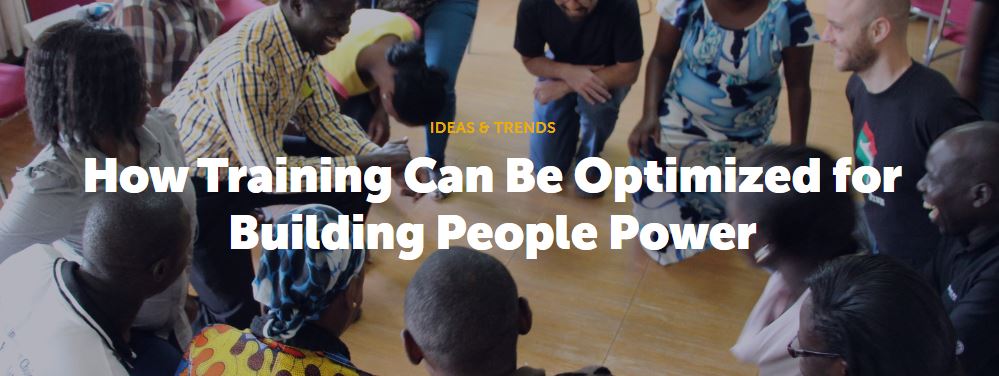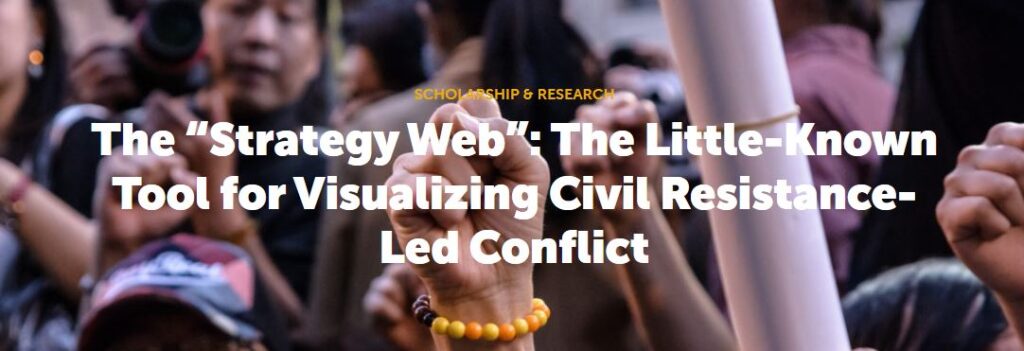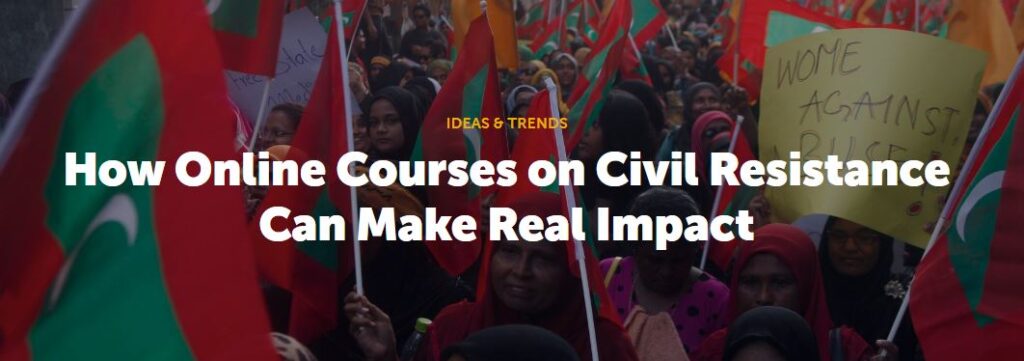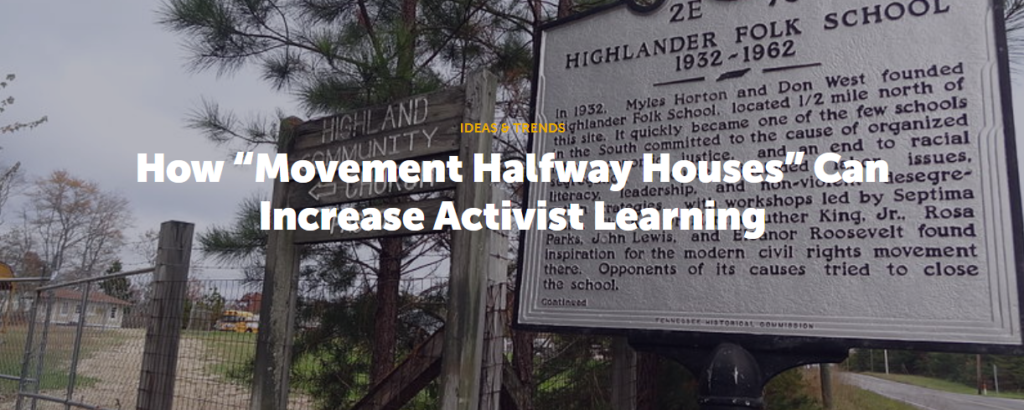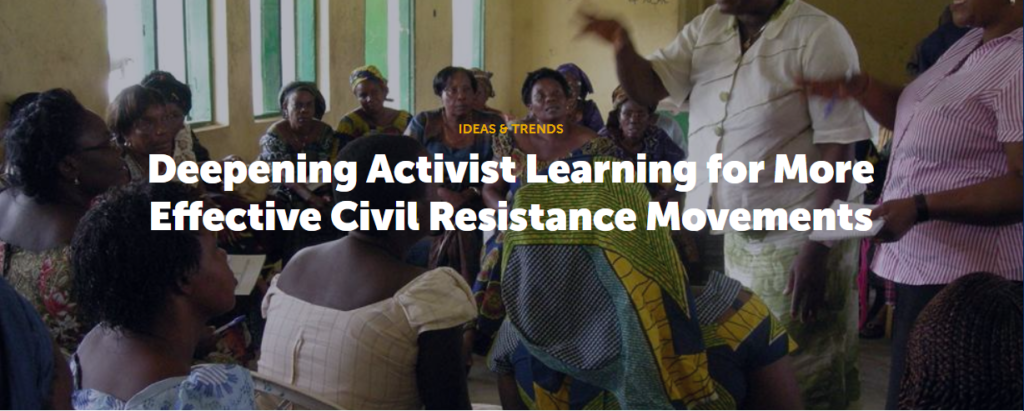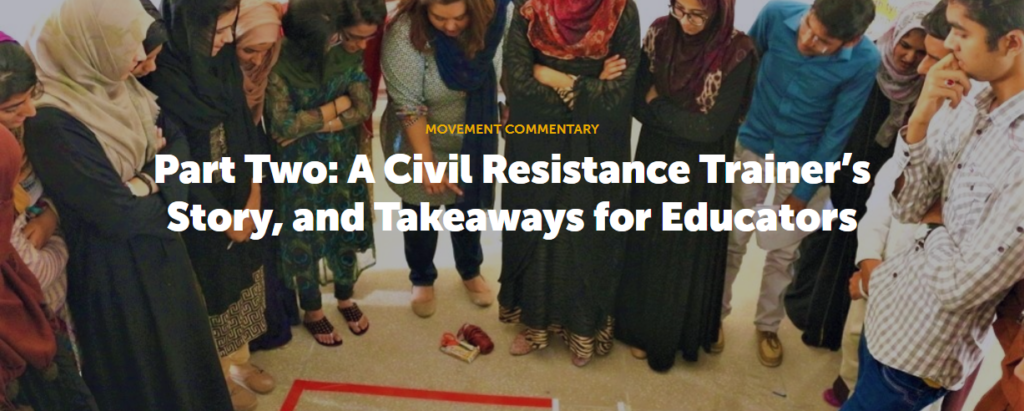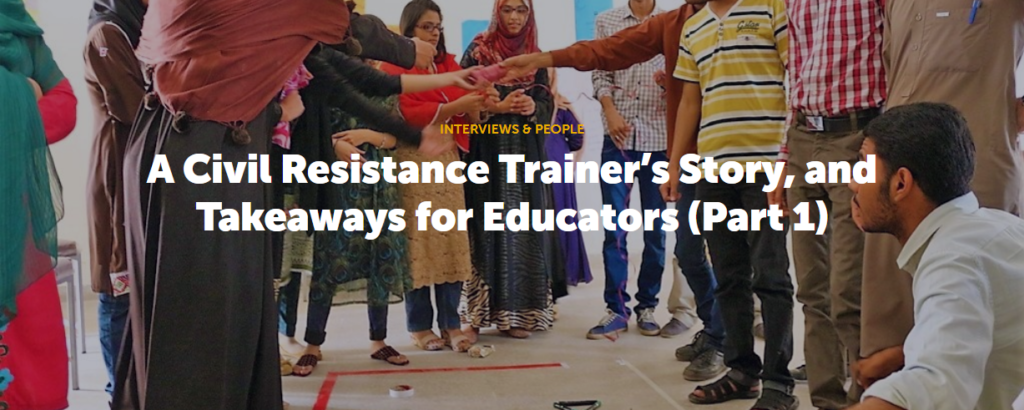Minds of the Movement
An ICNC blog on the people and power of civil resistance
A major limiting factor to the success of civil resistance movements is the worldwide lack of “infrastructure, processes, and information available to prepare organizers for the challenges of one of the toughest (and often underappreciated) jobs in the world” (Hardy Merriman, "Movement Building and Civil Resistance: Key Resources for Movement Organizers"). Activist learning, training, and education happens in many different forms, whether in the field or in a designated learning space. This series explores the theme of activist education and offers a broad picture of opportunities that are available to develop new skills and capacities for improving movement effectiveness.
By: Laurence Cox, April 11, 2022
If activists are resisting an incinerator in one town and the neighboring town is resisting a megadump, how can they get beyond just fighting their own battles in isolation? How can they link up those different struggles and push for environmental justice? And how can they work together with other groups to challenge the underlying economics and incentives that produce waste in the first place? […]
Read more
By: Mariam Azeem, March 2, 2022
In my first post, I followed up on Hardy Merriman’s insights for activists who don’t know where to start when it comes to movement training. In my work, this is the million-dollar question! Figuring out the first steps toward capacity building is often a huge obstacle for movements. In this second post, I expand on Merriman’s insights about how to obtain funding for trainings. […]
Read more
By: Mariam Azeem, March 1, 2022
Last year, I read Hardy Merriman’s blog posts about civil resistance training and activists’ common questions about training, and so much rang true to me. I am a fan of learning theories around movement support work and in-field tools and practices used by coaches and activists. Hardy’s fantastic blog posts inspired me to gather in-field experiences of Rhize's Global Coaching Fellowship coaches to share them with Minds of the Movement readers. […]
Read more
By: Hardy Merriman, March 25, 2021
For over a century, movement organizers have recognized the importance of developing knowledge and skills in civil resistance. Scholarship increasingly validates this view by showing the importance of training and strategy in movement success. Reflecting this convergence of research and practice, activist training is now widely considered a foundational movement activity. But how do you implement this insight? If you don’t yet have a movement, or your movement lacks the capacity to hold workshops, where and how do you start? […]
Read more
By: Hardy Merriman, March 24, 2021
In the face of rising authoritarianism, people worldwide are increasingly turning to civil resistance to fight for their rights. This is an empowering choice, but it can also feel overwhelming for those involved. When people seek to build a movement, the first big question is often: Where and how should we start? This leads to other common questions, such as: Should we organize a protest? Should we create an organizing manual? A manifesto? A social media account? Should we train people? […]
Read more
By: Phil Wilmot, March 25, 2020
Those of us who train and educate movements, whether in informal environments or in the classroom, would like to believe that our curriculum and how we present it directly determines the extent to which our participants thrive. While this may be partially true, these factors are far from being the most important determinants of a participant’s success. […]
Read more
By: Maciej Bartkowski, July 2, 2019
In this post, I would like to introduce our readers to the strategy web of vulnerabilities and resiliencies—a tool that, to my knowledge, has not been used in the civil resistance field despite its direct relevance to practitioners’ work, as well as the insight it can provide to movement and campaign analysts. I have used the strategy web to lay out various attributes that are associated with effectively led campaigns in a nonviolent conflict (either by a movement or by its adversary). […]
Read more
By: Maciej Bartkowski, February 13, 2019
There are many opportunities for structured online learning about civil resistance these days. With the growth of these online courses comes the challenge of measuring and assessing their impact. To this end, ICNC developed and conducts different surveys to evaluate its online courses that may serve as a useful template to others. This blog post shares the instruments we use to measure the impact of online education and the real changes we can discern from this work. […]
Read more
By: Steve Chase, January 21, 2019
January 21 is a national holiday in the United States that honors Martin Luther King, Jr., who first came to prominence as a civil resistance leader during the Montgomery Bus Boycott. Yet, the boycott was not inspired by King. It was inspired by Rosa Parks, one of the Highlander Folk School's best-known graduates [...]
Read more
By: Steve Chase, October 16, 2018
One of the reasons civil resistance movements and campaigns have achieved a relatively high success rate in spite of challenges is that many activists learn by doing in the midst of organizing campaigns. How can activist learning be deepened to further improve movement effectiveness? [...]
Read more
By: Mariam Azeem, December 27, 2017
In my previous blog post, I shared with you my personal journey to becoming a civil resistance trainer and outlined a few takeaways about effective training approaches. In this post, I expand on those takeaways, which I hope civil resistance trainers in other parts of the world can use to improve their work. [...]
Read more
By: Mariam Azeem, December 20, 2017
Over the past few years, I have been working as a civil resistance trainer and educator in various parts of Pakistan including Azad and Jammu Kashmir. At times, my work to spread knowledge about civil resistance for human rights, peace, and democracy has brought me to cross red lines drawn by patriarchal principles in Pakistani society (and so many other places in the world). [...]
Read more
